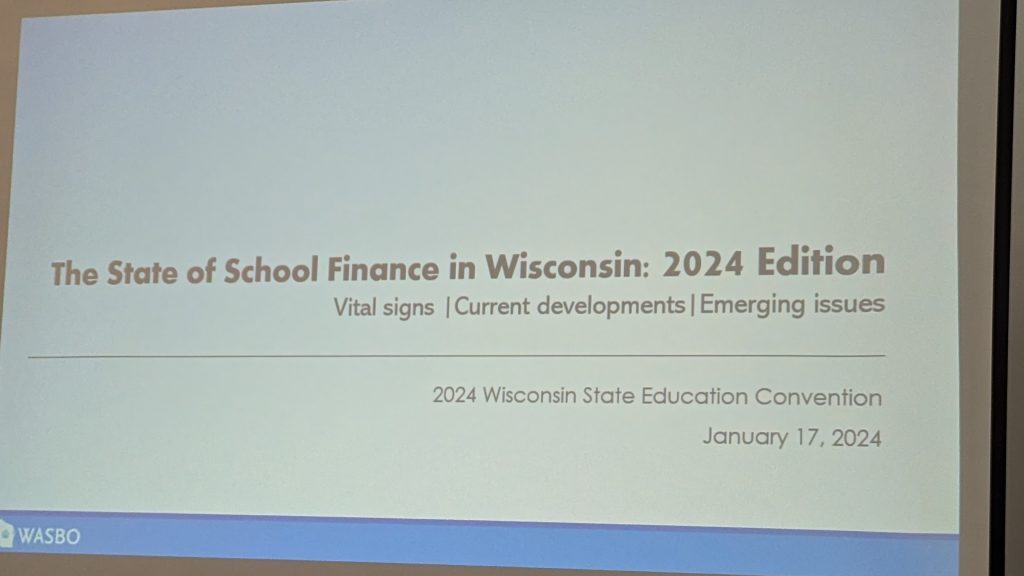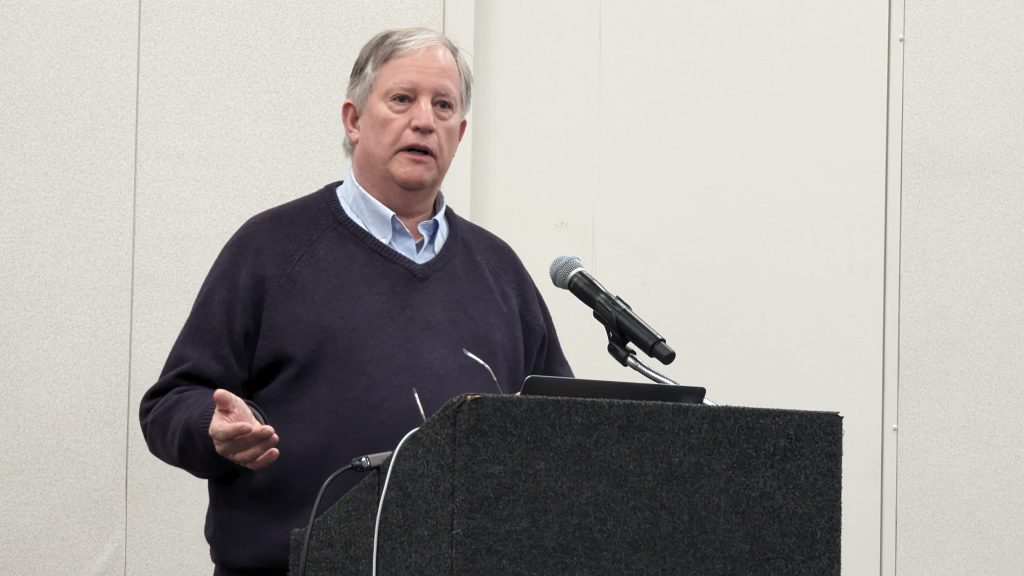
Source: Jimmie Kaska
School funding, staffing at forefront of discussion on first day of state education convention
The first day of the 2024 State Education Convention included a speech by State Superintendent Dr. Jill Underly.
MILWAUKEE (Civic Media) – Leaders in education from around Wisconsin traveled to Milwaukee this week for the 103rd State Education Convention.
At the forefront of breakout session discussions and general assembly speeches: School funding and staffing.
State Superintendent Dr. Jill Underly spent part of her time at the general assembly renewing calls for investments in schools, particularly special education.
“I want to be very, very clear: inclusion is what is best for kids,” Underly said. “And, at this moment in time, when we have a massive budget surplus, we must come together and work for greater investment in our schools.”
Underly also called out negative rhetoric on education topics, and said that attacks, some of them from the legislature, aren’t in the best interest of students.
“It bears stating the obvious: attacks on educators, and politicizing our daily work in schools and libraries, is not what is best for kids,” Underly said. “Standing up for our education system, and the freedom to let teachers teach, and parents parent, is what is best for kids.”
School funding was also a hot topic in breakout sessions, where information showing the gap in public education funding over the last several years compared to inflation and the number of districts planning referenda to balance their budgets painted an urgent picture ahead of the 2024 election cycle. Over 70% of schools are dealing with declining enrollment, which has led to smaller revenues, according to state data.
A survey done by the Wisconsin Association of School Business Officials in December showed that 38% of responding districts (136 in total) were likely planning on going to referendum in 2024. Already, seven districts have 10 referenda questions on February primary ballots, with more in the works for the spring election.
The deadline for districts to get referendum questions on the April election ballot is early next week.

Compounding the financial picture for districts are modest increases to education funding in 2023’s biennial state budget not matching the pace of inflation and the expiration of federal emergency funding issued during the COVID-19 pandemic. According to WASBO, 62% of districts said in December’s survey that the end of ESSER funding would result in a structural deficit.
Now, administrators and school boards are grappling with operational referenda, of which 146 have been placed on ballots statewide in 2022 and 2023. A record 92 operational referenda were on ballots in 2022, the most in the last 25 years, and state officials expect that 2024 will easily exceed 100 between the two primaries and two elections.
The two types of referenda for operational costs are also cause for debate within board meetings. Non-recurring referenda cover only specified years; after the final year, the district has to go back to taxpayers to ask for another referendum. Recurring referenda permanently increase the tax levy, which removes flexibility in operational planning and tend to be less popular for voters. A Marquette Law School poll in 2023 showed that for the first time in a decade, public sentiment had shifted to preferring property tax cuts over increased public school funding, 50% to 47%.
Districts facing the largest financial challenges are rural, where budgets are smaller and keeping up with larger districts that pay more for teachers and staff is nearly impossible with shrinking revenues. Over half of the state’s districts are considered rural.
It wasn’t all about funding and politics, however. A number of sessions focused on topics like hiring, communication, and administrative practices, with school safety workshops and nutritional demonstrations also part of the event. Student success was a large part of the day’s discussion, and the keynote speaker for the general assembly, author Sean Covey, discussed leadership topics for the 400+ districts represented at this year’s convention.

A session by Charles Franklin, who puts together the MU Law School poll, focused on declining public sentiment in Wisconsin for public education, noting that the data shows clear trends with population density and partisan identity. While some data shows even or slightly increasing support among some demographics, overall, respondents to polls in the last few years have been less willing to indicate support for public education.
Thursday’s second day of the convention, which is being held at the Baird Center in Milwaukee, will continue discussions on funding and policy, but also has multiple sessions on student achievement, facilities, safety, and leadership. The final day of the convention on Friday will include remarks from Gov. Evers.
For more information on this year’s education convention, you can visit the WASB website.
You can listen to coverage of the 2024 State Education Convention on Civic Media stations this week. Download the free Civic Media app by clicking or tapping here.
Ed.: Jimmie Kaska is attending the convention as a member of a school board in Wisconsin.

Jimmie is Civic Media’s Sports Director who also works in digital content, sports, news, and talk programming. Email him at jimmie.kaska@civicmedia.us.
Want More Local News?
Civic Media
Civic Media Inc.
The Civic Media App
Put us in your pocket.
